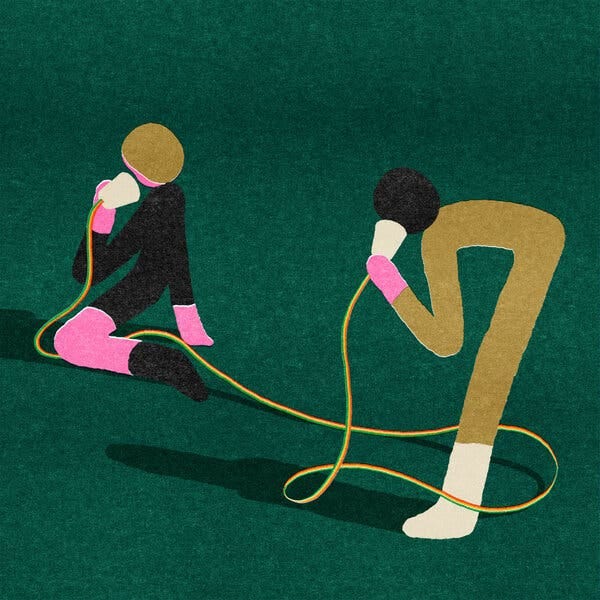By Jason Cherkis
Jason Cherkis is a Washington-based journalist who covers mental health and other subjects. He is working on a book about suicide.
The Supreme Court’s decision to uphold Tennessee’s law banning gender-affirming care for transgender minors and the Trump administration’s decision to end funding for the specialized suicide hotline for L.G.B.T.Q.+ callers are not coincidental. They both speak to a fundamental failure to acknowledge the day-to-day reality of trans people in America.
As part of my research for a book about suicide prevention, I spent about a year working weekends on a hotline. I couldn’t acquire a serious understanding of what it meant to talk someone out of attempting suicide just by interviewing therapists or even sitting next to the people taking hotline calls. I wanted to feel the weight of caring for suicidal people and experience what it was like to help them through a crisis.
What the Trump administration fails to understand is that a common thread running through these calls is the desperate search for just one trusted adult. If the callers had one, there is a good chance they might not have had the need to reach us. One trusted adult could help them figure out how to open up to their families and friends. One trusted adult could get them through a tough night when they feel utterly hopeless.
The national 988 Suicide and Crisis Lifeline on which I worked is the nation’s main suicide prevention effort. In many areas of the country, it may be the only therapy the callers will ever get. On any given night, I was taking calls from all over America….
Suicide is a leading cause of death in the United States, especially for teenagers and young adults. The risk of attempting suicide is even higher among L.G.B.T.Q. young people because of stigma and discrimination. When a call popped up on my screen from the Trevor Project line dedicated to L.G.B.T.Q.+ callers, I waited a beat and took a deep breath. I was all but guaranteed to find someone who sounded much younger than my average caller. The risk of suicide on this line was so great that our supervisors required us to ask callers whether they were having suicidal thoughts in that moment. We were not to assume the gender of the caller. It never stopped being a shock to answer the line and hear a prepubescent voice.
Some had already tried self-harm or made more than one suicide attempt. Many on a daily basis contemplated killing themselves. Gender dysphoria, one explained to me, was like “being tortured in my body.”
My experience runs counter to what the Trump administration has asserted in its decision to end this line. The Office of Management and Budget falsely argued that the phone line was a conduit of indoctrination “where children are encouraged to embrace radical gender ideology by ‘counselors’ without consent or knowledge of their parents.”
My callers wished their parents weren’t in denial and didn’t echo right-wing talking points. They wished they didn’t feel so alone late at night. They called from Utah and Arizona and Iowa. That more calls came from rural red states than from urban blue states was not a mere gut feeling on my part. Published data by the Trevor Project links the dozens of recent anti-trans laws with increases in the rates of suicide attempts by transgender and nonbinary youth.
One night, a suicidal trans girl said she had to cut the call short because it was getting to be past her bedtime. I am a cisgender male and a corny dad with a kid similar in age to these callers. Before they hung up, I whisper-yelled into the phone that they could call again anytime.
Read the full article in The New York Times.


